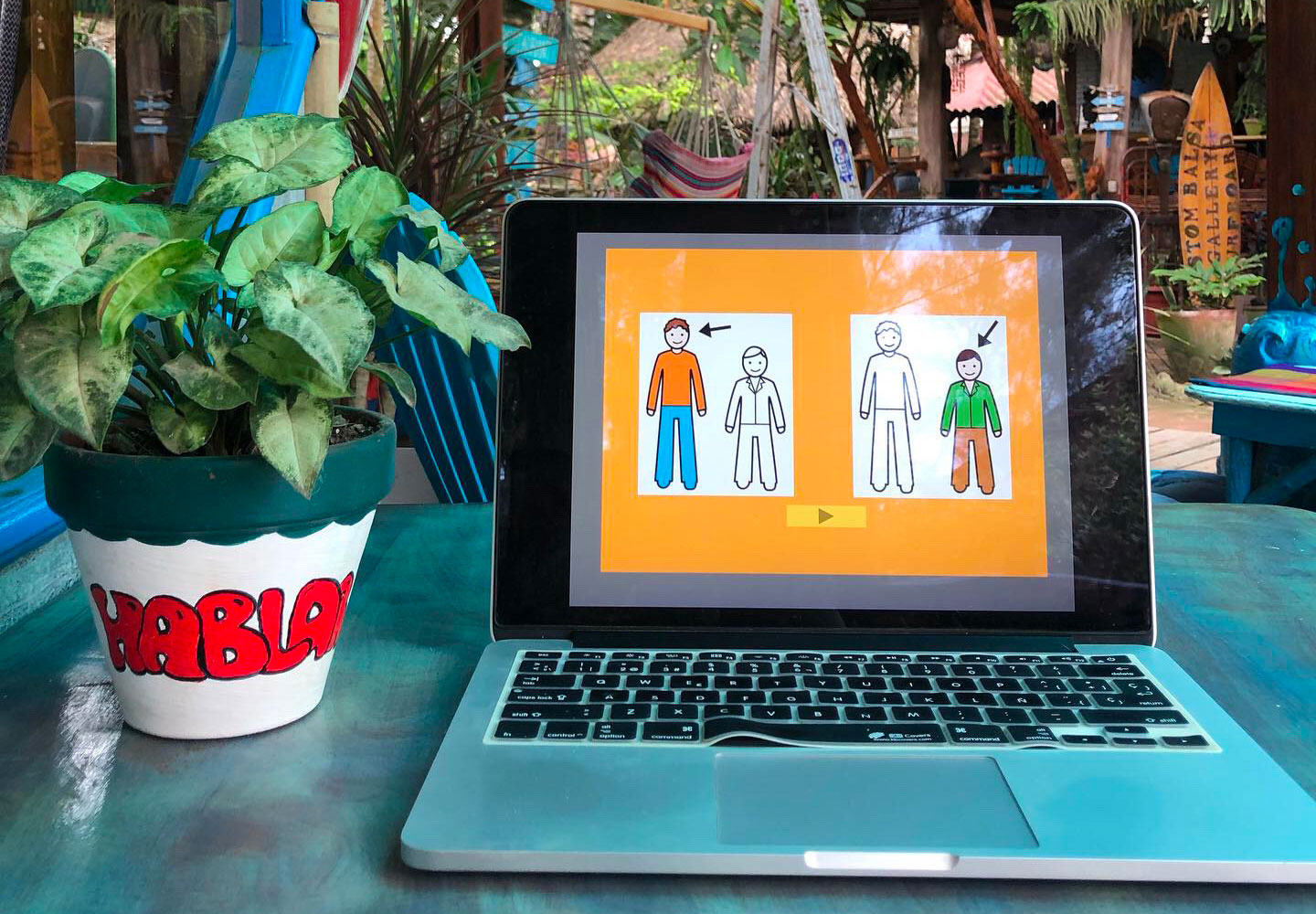
The Real Story of Montañita
20 January 2020
5 Amazing things about Ecuador
1 February 2023
How Do You Learn The Basics of the Spanish Language Quickly?
Version en inglés y en español.
Most people are afraid of learning a new language. They’re scared of failing or sounding stupid when practicing, I am sad to accept that I was one of them.
I always thought that motivation is the key to learn a new language. Until I discovered that learning is a personal journey very different for each person and the only way to triumph is to add a strategy to your motivation.
Nelson Mandela once said: “If you talk to a man in a language he understands, that goes to his head. If you talk to him in his language, that goes to his heart.”
Learn Spanish Quickly
Being able to communicate in another language allows you to think differently, enables you to meet more people from around the world and might open many doors.
Therefore, I would like to share with you some of the keys that will help you to learn the basics of the Spanish language very quickly.
Below are several strategies that I’ve personally used to learn German, English, and French. Some of them are easy, others will take time to implement. However, if you put in the time & effort, all of them will work and can take you to the desired level.
Here are my tips:
1) Create Daily Goals
I cannot tell you the exact goals, that is up to you! But first, think about how much time can you invest, organization is the first step.
For instance, you can separate 10 minutes daily to practice your vocabulary, use an app, check the dictionary, read posts on Instagram or listen to a podcast. But those 10 minutes must be sacred, make them a routine, but also a routine that you enjoy. Prepare a cup of coffee, sit in a nice coach, and enjoy the process.
This makes everything much more manageable. Instead of procrastinating due to a massive workload, focus only in 10 minutes daily or 20, or 30, but do it, regularly.
Or find something that can complement your routine, for instance, listening to a podcast can be done while driving.
2) Make new friends
It is not easy to learn a new language by yourself without having someone to practice. Without a doubt, the best way is to find people with the same interest in your city or town, and start attending events! Look for meetups, if it is possible, or online chats to practice languages. Friendship is one of the best ways to learn a foreign language and the easiest way to get comfortable with slang, intonation, and mannerisms.
Of course, traveling is the easiest way to find people to practice, but it might not be that easy to do. If you can plan a trip, there are plenty destinations that are safe, fun, and affordable like Ecuador (my country, highly recommended).
If you manage to visit a country that speaks Spanish, I would definitely recommend living with a host family that doesn’t speak your native language.
3) Watch TV, Netflix or YouTube videos
Learning from the comfort of your own sofa while getting to know the culture, traditions, and slang.
Again, use your strategy to accomplish your goals, and schedule one weekly episode or movie. It gets better, if you enjoy the show, I will recommend you a few options in another post.
If you don’t know enough of the language to turn the subtitles off, keep a list of new vocabulary words you hear and what you think they mean. Look them up later, if you want, or just get used to the sense of the meaning.
4) Translate music
Music is not just fun but an incredible way to improve your vocabulary, being able to translate your favorite songs will improve your understanding of the language. As a bonus, you’ll appreciate the music a lot more once you can understand the lyrics instead of them being incomprehensible.
In the next post, I will put a list of songs that you might find useful!
Listen to the radio, there are plenty of radio stations on the internet now, that you can check and try to see how much you can understand. There are radio shows that combine interesting comments, news, and discussions while playing some music, if you have the time to seat and work more deeply write down words that you recognize but do not understand to look up.
(Pro tip: listening to the news in another language is an unbelievable and really intense way to start learning vocab and conversational structures fast!).
5) Social Media
How many hours a day do you spend on your cell phone, tablet, or computer?
Most of us have a love-hate relationship with social media. We use away time intended for other things, scrolling sites, and laughing over silly photos, videos, or memes.
There is a new trend in social media, that encourages teachers to explain tricks, tips and other tools to improve language skills.
According to studies: social media adds an element of interactive fun to the language learning equation. And when something doesn’t feel like work, we tend to apply ourselves just a little bit more—with seemingly less effort.
The social aspect also allows you to connect to others, including other students like yourself as well as native speakers.
The videos are fun, colorful, entertaining and have useful content. I also use Instagram and you can check our information:
It might sound not too valuable, but if you can learn the most frequently used words, you see them daily, and you repeat them, you’ll be able to understand everyday conversation pretty easily.
That’s how to start. Use these techniques to accelerate learning and develop a better understanding of any language.
If you would like to know more useful tips, please join me on Instagram. I also will be adding new content to my blog, and I am currently working on my new project, I am so excited about it! But I cannot tell you now!!!
Soon my friend... very soon!




